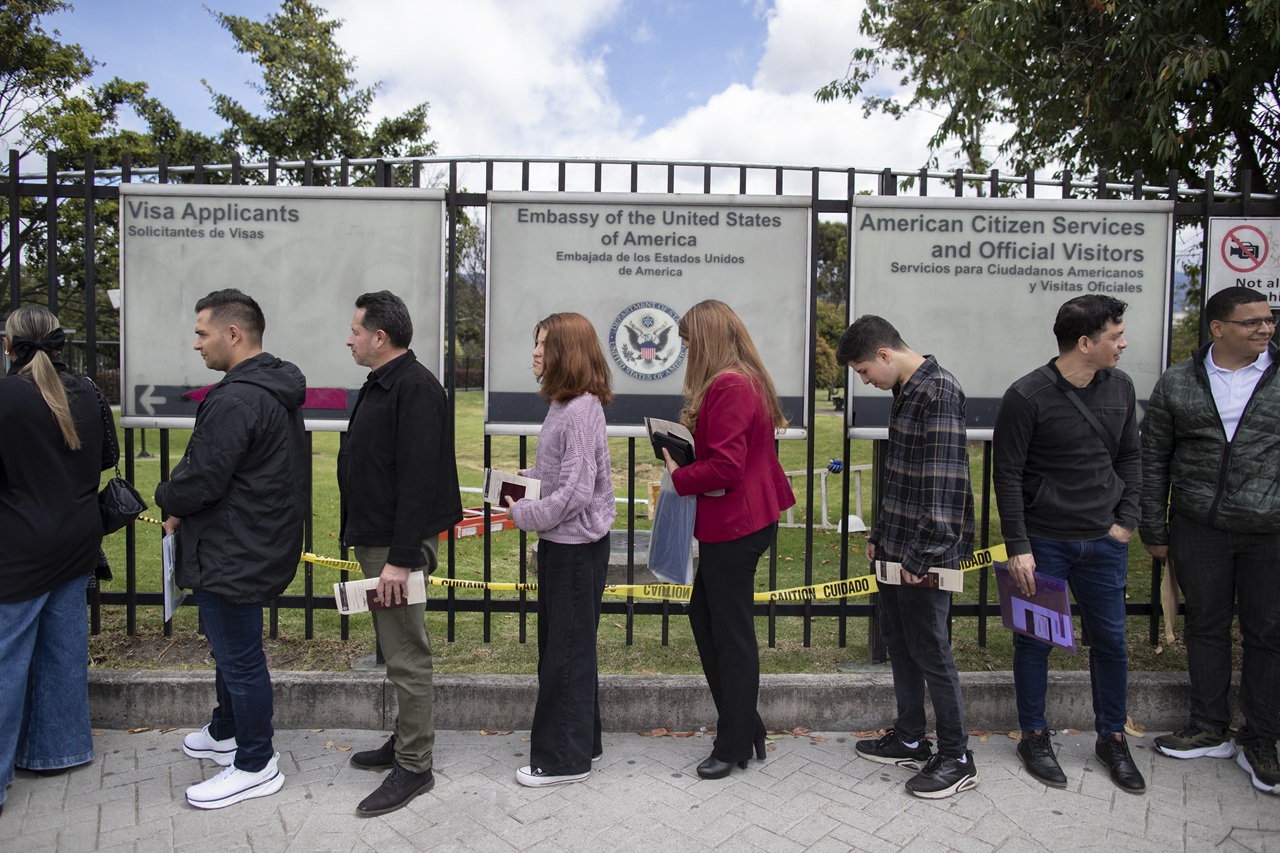
Minnie Gonzalez takes on judicial accountability in Connecticut
After nearly retiring, this lawmaker found a cause and a reason to stay.
In 2012, Minnie Gonzalez was ready to retire when fate intervened.
Gonzalez is a Democratic State Representative in Connecticut and had been since 1997.
She was also a member of the House Judiciary Committee.
In Connecticut, judges are appointed, but like with the U.S. Supreme Court justices, they must be approved by the legislature.
However, unlike with U.S. Supreme Court nominations, that process was often little more than a rubber stamp.
In 2012, the nomination of Maureen Murphy came in front of the House Judiciary Committee.
Murphy’s nomination, unlike most, turned into high drama played out in front of television cameras.
Murphy had been a guardian ad litem (GAL), a professional appointed by the court to act in the best interest of the child, for Kelley’s son during her divorce.
Only several people asked to testify that Murphy did not act in the best interest of Kelley’s child.
Gonzalez said prior to the hearing she had heard things about guardian ad litem, lawyers, and judges all behaving badly, but everything changed after this hearing.
One thing she noticed was that people from around the country came to Connecticut to testify against Murphy.
“They [the witnesses] don’t have a dog in this fight; it’s got to be for real.” Gonzalez said.
One of the witnesses was Dr. Eli Newberger, the founder of the Child Protection Team and the Family Development Program at Children’s Hospital in Boston, who testified that Murphy ignored credible evidence that Kelley’s ex-husband was molesting their child while recommending sole custody for him.
“Ms. Murphy’s failure to take action to protect a child who is showing serious signs of sexual abuse augurs badly for her performance as a Superior Court Judge,” said Ada Shaw, another witness who testified against Murphy.
While Gonzalez took notice, the rest of the committee did not; Murphy was approved and is currently a judge.
“It was terrible; it was for real,” Gonzalez said, “but some of the reps, they decided not to believe.”
In 2015, Murphy struck again, ordering sole custody for Angelo Gizzi, even though Gizzi pled guilty in 2012 to beating his wife.
Judge Murphy did not respond to an email for comment.
She was no longer going to retire and dedicated herself to trying to change the court system.
“That’s when I started listening and meeting with all of these people,” Gonzalez said, while noting that though she is focused on her home state, she has met with people all over the country and believes the problem of family court abuse is nationwide.
From there, Gonzalez put pressure on the legislature until the “Connecticut Task Force to Study Legal Disputes Involving the Care and Custody of Minors” was formed.
Gonzalez said, “Hundreds of people came to testify,” during two days of hearings.
One of those was Hector Moreno who stated in part, “I would rather not be here today. I would rather be with my children, or working or hiking,” Moreno said. “On August 9, 2013, my children were stolen from me. The GAL in my case, Margaret Bozek, perjured herself in an affidavit.”
The testimony of other parents mirrored that of Moreno; children were effectively kidnapped by courts with crimes by court actors like GALs and lawyers going unchecked.
This task force would look at the corruption going on in Connecticut.
This task force received great fanfare. Here is part of a Hartford Courant article from 2015:
“Federal law enforcement officers, struck by what they called the persistent criminal behavior of government officials in Connecticut, said Wednesday that they have created a multi-agency, federal task force to fight public corruption in the state.
Kelley said she and other family court victims met with members of the task force.
She specifically focused on a group called the Association of Family Conciliation Courts (AFCC).
That group played an enormous role in her case: “There were, to my knowledge, 11 professionals involved in my case who are AFCC-affiliated, either directly as founders and members, or through publicly funded, AFCC-run [guardian ad litem] trainings,” Kelley said to the Connecticut legislature in January 2014.
Another family court victim, Susan Skipp, had seven AFCC members on her case; in both cases, the AFCC court appointed members ignored their allegations of abuse by their ex-spouses and recommended sole custody to those spouses.
Kelley hasn’t seen her son since 2012, while Skipp hasn’t seen her children from her most recent marriage since 2013; Skipp has children from a previous relationship with whom she maintains regular contact.
Gonzalez is also aware of AFCC; many of these same parents testified in front of the 2013 Task Force.
“The task force also heard testimony regarding an entity called the Association of Family and Conciliation Courts (AFCC), which allegedly functions like a vendor and has had questionable practices, ties and relationships with judges, guardians and other court officials,” an article in the New Haven Register noted.
RELATED CONTENT
Kelley told the task force investigating corruption that AFCC is run like a racketeering criminal enterprise and should be prosecuted under the Racketeer Influenced and Corrupt Organizations Act (the RICO Act), which has also been used to take down the Mafia and other organized crime.
“I told them that multiple times,” Kelley said. She has met with federal agents six times, including multiple times with members of the task force.
Skipp also met with the task force, but ultimately, no one in Connecticut was charged, let alone convicted by this task force.
The other members in that press conference were: Representatives Christopher Rosario, Juan Candeleria, Michael DiMassa, Robyn Porter, and Edwin Vargas.
Representative Rosario, who was the Chair of the Black and Hispanic Caucus, said at the press conference, “We’re here to talk about accountability, to make sure that the system is fair, especially to those that are most vulnerable.
It was a watershed moment. Prior to the press conference, she could be written off as a lone wolf. Furthermore, the press often demonized her with stereotypes of being an angry Latina.
Here is part of a 2015 editorial from the Hartford Courant:
“State Rep. Minnie Gonzalez, Democrat of Hartford, has let her passion over a family court issue overwhelm her judgment, leading to unacceptable conduct for a lawmaker.
That smear no longer held water with several other members of the Connecticut House standing beside her. Each of the six legislators had the same message: it was long past time for real judicial accountability.
When she started, Gonzalez said many colleagues said, “don’t believe those parents.”
The litigants she spoke to were referred to as disgruntled, but that has changed. “Today, I have several people they know that it’s a problem. I did change a lot of minds,” Gonzalez said, but the work is far from done. “but still they are very cautious when they have to vote against one of these judges.”
Kelley said this was a chess match with several members of the Black and Hispanic Caucus now on the committee.
Gonzalez disagrees: “I was able to get rid of a couple judges,” she said.
One too many she believes before the judiciary put pressure and she was removed from the committee.
Gonzalez said the main problem with the system is conflict of interest.
Members of the Judiciary Committee often want to be appointed judges; some are angling to head the committee.
Others work in the court system; in Connecticut, state legislators are part-time and many are lawyers while some work as GALs.
Furthermore, judges wield a lot of power, one colleague, she said told her, “you’re fighting against the big boys,” referring to judges.
Still, when asked, Gonzalez said that things have improved since 2012, when she was first introduced to Kelley’s case.
Kelley agreed and said, “Minnie is the main reason.”
“We want to make sure they [judges] treat people with dignity and respect,” Gonzalez said.










LEAVE A COMMENT: